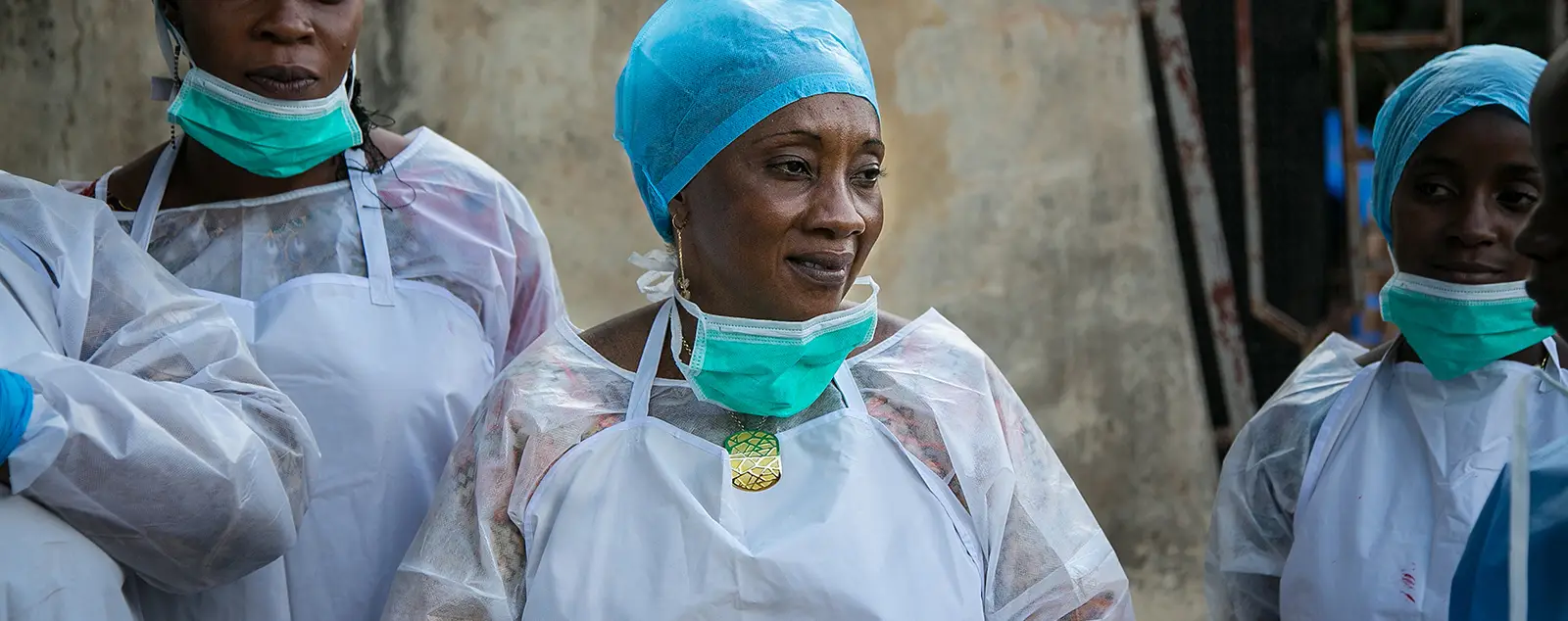
Photo by Patrick Adams for RTI International
In the wake of epidemics like Ebola in Africa and global pandemics like COVID-19, global health security has gained new momentum and commitments around the world. Turning that ambition into action is critical for preparing for the next pandemic – which is a matter of when, not if.
This is no more apparent than at the country level – the frontline for disease outbreaks. Diseases risk spilling over from small communities to entire nations, regions, and the world when countries and their partners lack the capacity and tools to prevent, contain, and respond to local outbreaks.
As global health experts, international development practitioners, and policymakers gather for the 2023 Annual Meeting of the American Society of Tropical Medicine and Hygiene (ASTMH), the topic of global health security is front and center. RTI will be there to highlight the critical role of country preparedness and response capacity in global health security.
Four Examples of Strengthening Country-Level Health Preparedness
Below we highlight four examples of the evidence and experience we’ve recently generated from working with Ministries of Health to strengthen country preparedness and response systems for detecting and containing disease. We’ll be sharing presentations with additional detail on each of these topics at the ASTMH meetin
1. Strengthening Nigeria’s Capacity to Detect the Next Pathogen
Country preparedness requires robust systems for disease surveillance, which include the diagnostic capacity of local laboratories to identify pathogens with potential to cause epidemics. In Nigeria, we sought to maximize the screening potential of two hospitals in low-resource settings that had these limited diagnostic capacities. We did this by studying which pathogens had transmission potential among the populations they served. We then used the findings to tailor screening tools for acute febrile illness (AFI), which a range of pathogens can cause. By including the set of pathogens most likely to cause disease and death among target populations, these new screening tools are helping health facilities more accurately detect and monitor for endemic, new, or reemerging diseases.
2. Predicting the Epidemic Curve and Impact of Ebola Outbreaks in Uganda
Data analytics is making it easier for countries to detect and monitor disease, understand how it might spread, and test solutions to contain it. For example, modeling can help a country predict how an outbreak may evolve in the absence or presence of certain interventions. In Uganda, we have been helping the Ministry of Health use publicly available and programmatic data to model the spread of Ebola and evaluate the impact that various interventions to contain it would have had. While we did this after the Ebola outbreak to help the government assess the effectiveness of its response, we’re now helping them build on this platform to model potential future outbreaks and evaluate a range of interventions for preventing and controlling them.
3. Keeping Health Workers Healthy and Safe in the Democratic Republic of the Congo
Protecting health workers is critical to containing disease. In many countries where RTI works, health workers are already constrained and often deliver routine services with limited resources. Keeping health workers healthy and alive in the event of a disease outbreak is paramount to ensuring a country has the staffing necessary to continue providing routine lifesaving services while also responding to the outbreak and containing it. But what happens when health staff aren’t taking part in preventive measures like vaccines? We studied this question in the Democratic Republic of the Congo (DRC), which has one of the lowest rates of COVID-19 vaccine coverage in Sub-Saharan Africa. We surveyed health workers to understand their viewpoints on the risk of COVID-19 and why they were or were not getting vaccinated. The results are helping the DRC understand the greatest barriers to vaccination, like lack of information, and how it can overcome them to keep its health workers safe.
4. Staying Focused on Disease Elimination Despite Conflict
Progress is possible in eliminating disease, even in areas of conflict. New disease outbreaks can originate anywhere, at any time, including from zoonotic spillovers from wildlife to humans. They can also reemerge from previously contained diseases, like in the case of neglected tropical diseases (NTDs), which many countries have been on a mission to eliminate. Conflict and instability put health services and other programmatic efforts at risk and constrain communities’ access to effective interventions such as preventive drug treatment and insecticide-treated bed nets. NTDs will persist and spread unless everyone has access to these interventions. RTI is using its conflict sensitivity toolkit to address NTD treatment coverage and surveillance in conflict-affected areas of countries like Mozambique and Ethiopia. By staying flexible and prioritizing communication and coordination among local actors, we’re helping countries make progress despite continued insecurity.
Turning Evidence into Action
As the world considers what it will take to prepare effectively for the next pandemic, investing in country preparedness and response capacity is essential. RTI is generating evidence around some key areas, like the need for strong disease surveillance, health workforce safety, and conflict sensitive approaches, that can help. Now is the time to turn this evidence into action to prevent the next pandemic and keep everyone healthy and safe.
